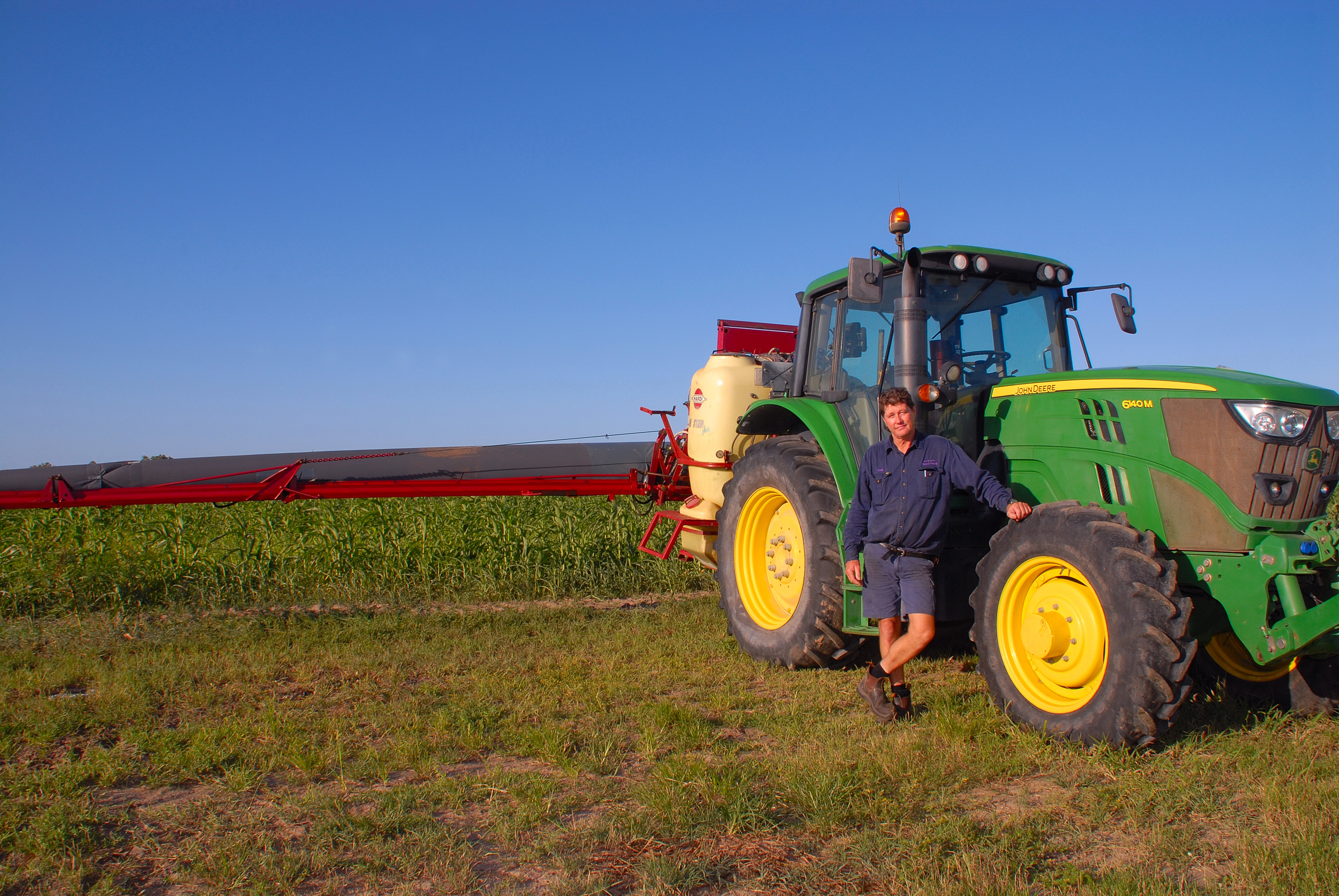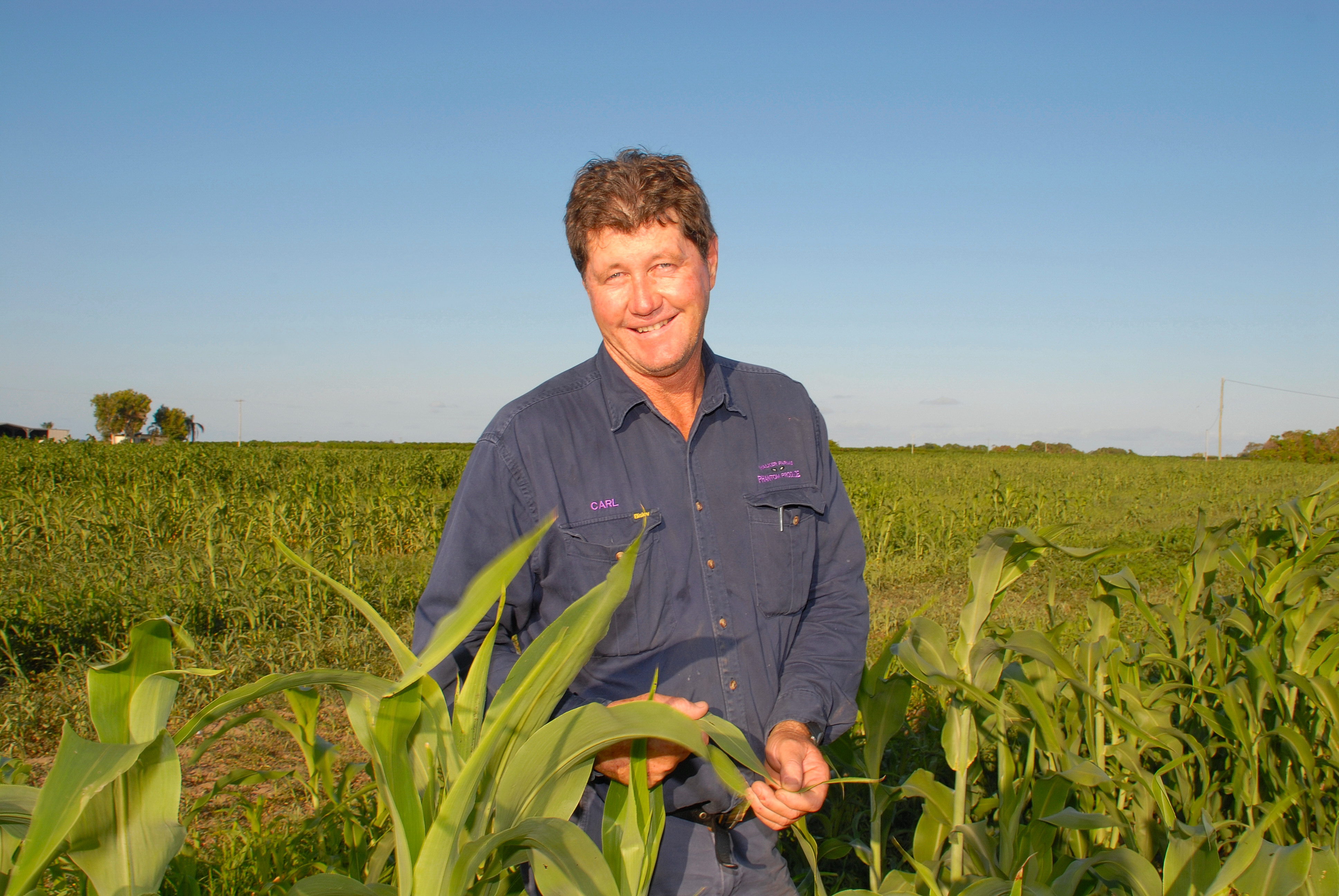Carl Walker: Driving a community forward into a brighter future
As President of Bowen Gumlu Growers Association for the past 11 years, vegetable grower Carl Walker has learnt to embrace being in the public eye and leading an industry which provides 3,500 jobs to the far-north Queensland community. Carl spoke to AUSVEG about the industry challenges, the impact of Cyclone Debbie and the lessons learnt from the 2017 storm.
Fast facts
Name: Carl Walker
Location: Bowen, QLD
Works: Phantom Produce
Grows: Capsicum, cucumber, tomatoes
They breed them tough in far-north Queensland.
It’s partly the result of enduring many devastating weather events, including Tropical Cyclones Oswald, Yasi and most recently, Debbie – a category four storm which flooded communities from the Whitsundays down to northern New South Wales, causing an estimated $2 billion worth of damage.
Bowen vegetable grower Carl Walker and his wife Trudy have seen it all over the past 23 years as owners of Phantom Produce, formerly known as Walker Farms.
The couple started their business in 1995 with little more than $1,000 and a lot of debt; now they run a 100-acre capsicum, cucumber and tomato growing operation.
In addition, Carl is in his 12th year as President of Bowen Gumlu Growers Association, a vital position which allows him to represent an industry that provides 3,500 jobs and injects $450 million into the region annually. In times such as the aftermath of Cyclone Debbie, fruit and vegetable growers’ voices need to be heard on important issues affecting their businesses, and it is in this role that Carl can provide a platform for this to occur by talking to politicians and government departments alike.

A challenging year
Carl says that while 2017 was a disaster for the Bowen Gumlu region, some of the devastation could have been avoided if planting schedules weren’t changed.
“Growers mightn’t like me saying this but some of the problems in 2017 were caused by ourselves. In my business, we didn’t change our planting schedule; we stuck with what we had. What we lost, we lost – suck it up and move on. Unfortunately there were a lot of businesses talking to wholesalers that decided it’d be a great year to grow extra product,” he says.
“Unfortunately no one took into account that before the cyclone there were 25 million people in Australia, and after the cyclone there were still 25 million people in Australia.
“Then we had a perfect growing season and had extra product in the ground, as some of the producers decided to extend their season because Bowen was hit by the cyclone. This was not a good idea because we got more overlapping, consumers got more to choose from and they paid less.
“I think, in hindsight, if most people had just stuck to their original game plan and forgotten about the losses from the cyclone, they would have had a breakeven year and maybe better.”
"I love being out in the fields, and I love being in the soil. I love the growing and the satisfaction in growing the crop: you plant it, you nurture it, you protect it, you irrigate it, you fertilise it; you do whatever you can to maximise its potential so that you hopefully harvest a beautiful clean crop which is going to be great for your local community and for those around the nation who eat our product."
Other key issues
There are other challenges which face growers, not just those posed by the weather. These include staying sustainable and profitable, keeping up with the new industry regulations as well as maintaining sound biosecurity practices.
Due to the advances in on-farm technology – Carl has introduced bigger tractors, GPS auto-steer used in controlled traffic farming, trickle irrigation as well as variable rate control on the tractors and fertiliser bins and mapping – there continues to be an oversupply of produce.
“Australia grows enough food for 40-60 million people and we only have 25 million, so there’s always an oversupply. Consumers are getting pickier with what they want so our waste is going up,” Carl says.
“People need to look at their marketing, their costs and where they’re going to sell it to and then go to those markets. Due to those modern techniques, we can grow a really fantastic product and plenty of it, but if you can’t sell it, you’ll always go broke. That’s what unfortunately some people don’t realise and that’s something we need to look at in our industry.
“Moving forward, we’re looking at more market access for our association and we’re looking at processing plants, value-adding etc. Hopefully we can combat all those issues and move forward in a sustainable and profitable way.”
Opening the borders
Market access, Carl says, is very important for the vegetable industry.
“Our market now is saturated – we’ve got more product in Australia than we can eat. That’s the cold reality,” he says
“If we’re going to feed the world, we can’t grow the food and then pray they’re going take it. We’ve got to make sure we’ve got the market access and the growing all working in conjunction or we’re just going to send people broke.”
At the time of writing, Carl had just returned from New Zealand. Phantom Produce currently exports produce to our Trans-Tasman neighbour and he is eyeing further opportunities over there. Carl was then taking off to Japan to look at additional market access opportunities in Asia.
“Japan’s still two years away but it looks like it might open up a little bit more for product. We’re looking at the way that they’re packaging, the way they do their value-adding, and see if we can utilise any of that in our business and maximise our profits per kilo, or per unit,” he says.
Becoming a leader
Carl has learnt a lot over the years during his presidency of Bowen Gumlu Growers Association, and he admits it can be a difficult job.
“Part of my role is lobbying politicians; lobbying government departments; trying to convince growers why we should be doing different things; trying to move traffic in a direction that you feel it should be going,” he says.
“Also, trying to change people’s thought patterns a little bit as well as providing information through our Industry Development Officer and our Secretary – making sure they’re sending out information to growers, helping them with issues they’re having and helping them with grants – there’s a lot of money to be had which we don’t know about.
“As President of the association, everything we do affects the viability or sustainability of other businesses in town, and you’ve got to make sure you work with people – even those that you don’t see eye to eye with.”
Since Carl has been President, the community has grown from turning over $200 million worth of produce annually to $450 million, and there are no plans to slow down.
“My vision is to grow this association where we have a CEO, and the growers act as an advisory group to make sure that the employees aren’t going off the track in servicing the needs of the growers, and remembering who they’re working for – not only the growers, but the community,” Carl says.
Community pride
Carl’s proudest moments as a grower extend to the wider horticulture community, and the way it has rallied from setbacks including Cyclone Debbie.
“I’m just so proud to be part of a community and an industry that doesn’t sit around crying about their spilt milk. You might lose all your crops and yes it hurts you, but you don’t sit down and cry about it. You go, ‘Right! How can we make this better and move forward? What do we have to do? This year’s going to be hard, but we’ve always got next year.’
“Cyclone Debbie was tough. We’re still fixing up things that have been damaged – the losses were enormous but you can’t sit around; you’ve got to keep moving on. If you do sit around, you fall over.
“I’m proud to be part of an industry where the majority of growers just get on with it. It’s happened – move on.
“Isn’t that great?”
This grower profile first appeared in the leading magazine for the Australian vegetable industry, Vegetables Australia. If you’d like to subscribe to receive a new edition of Vegetables Australia in your mailbox every two months, use our online subscription form!

